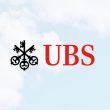Taking ethical banking global
 In early 2009, soon after the global subprime fallout, the official Vatican newsletter published a rather contextual referral for Islamic banking, observing that the ‘ethical principles on which Islamic finance is based may bring banks closer to their clients and to the true spirit which should mark every financial service‘, writes Riaz Akhtar, senior consultant, Infosys Finacle.
In early 2009, soon after the global subprime fallout, the official Vatican newsletter published a rather contextual referral for Islamic banking, observing that the ‘ethical principles on which Islamic finance is based may bring banks closer to their clients and to the true spirit which should mark every financial service‘, writes Riaz Akhtar, senior consultant, Infosys Finacle.
The ethical principles defining Islamic banking originate from the Muslim religious law of Sharia, which expressly prohibits charging interest, investments in morally questionable industries and speculation. It also stipulates that all transactions be backed by real assets and based on profit sharing between the bank and the investor according to a mutually decided ratio. Unlike conventional banking, there is never a promise of a fixed rate of return, but there is transparency in products and in the investment process. In a pre-crisis world, this might have seemed anachronistic. But to a world recovering from a crisis triggered by reckless banking practices, it holds immense appeal.
Undeniable potential
The global market for Islamic banking, measured in Sharia-compliant assets, grew from $933 billion in 2009 to $1.3 trillion in 2011. The industry is expected to touch $1.8 trillion this year, cross the $2 trillion mark by 2014, and grow at a rate of 12-15% into 2015, with some markets growing 50% faster than the overall banking sector.
But Islamic assets form just 1.5% of global banking assets. Worldwide, only 12% of Muslims use Islamic financial products. 80% of Islamic financial assets are in the Gulf Cooperation Council countries, housing 6% of the global Muslim population.
So clearly there is potential for Islamic banking to step outside its core constituency. Growth prospects look good in Asia and there is an emerging market opportunity in Turkey, Egypt, Jordan, Syria and Africa as well as in other markets like Australia, Japan, China, Azerbaijan and Kazakhstan. Many global financial centres, like Paris, Frankfurt, Luxembourg, Hong Kong and Singapore, are pursuing their own aspirations of becoming Islamic finance ‘gateways’.
This is an aspiration that the United Kingdom pioneered and realised to a great extent. Today, the country has cemented its place as the Western world’s premier Islamic finance centre with $19 billion in Sharia-compliant assets.
The UK scenario
The UK’s rise as a worthy Islamic centre stems from a supporting and sustaining framework of policy and regulation established in 2003. The launch of five Sharia-compliant banks between 2004 and 2008 put it on the leader board in Western Europe. There are 17 Islamic windows providing financial services, and to date, a total of 43 sukuk, valued at $24 billion have been listed on the London Stock Exchange. The LSE also lists seven Sharia-compliant exchange traded funds and two Sharia-compliant exchange traded products. And notwithstanding the temporary setback to retail Islamic banking caused by the withdrawal of a significant player, the country can still boast of a vibrant Islamic investment banking environment.
A strong ecosystem, comprising legal & professional services specialists and education & training infrastructure lends support to the industry. Later this year, London will also host the 9th World Islamic Economic Forum, the first time that the annual event is being held in a non-Muslim country. Recently, the government also launched the country’s first Islamic Finance Task Force to further its aspiration to become the global gateway to Islamic finance.
The challenge of global expansion
It will take more of such initiatives, at various regional levels, for Islamic banking to realise its potential in the UK and elsewhere. There’s also a need for an industry-wide effort to address two key challenges.
As the business expands its geographic footprint and portfolio, the development of globally accepted standards and structures will become imperative. Today, what works in Malaysia, for instance, might not be acceptable in Bahrain because of the difference in interpretation in Sharia Law. International bodies, like the Accounting & Auditing Organisation for Islamic Financial Institutions and Islamic Financial Services Board are working towards universal consensus. Industry experts are leading discussions to standardise both regulations and certification of Sharia scholars. At the recently concluded 10th Islamic Financial Services Board Summit, the President of the Islamic Development Bank recommended the establishment of a global Sharia board. Growth hinges on how quickly such moves attain fruition.
A recent analyst report says that Islamic banks’ operating expenses are up to 50% higher, largely because of the cost of human capital. To compete effectively in an industry known for its IT aptitude, Islamic banks need to make appropriate investments in best-in-class core banking systems and other solutions, such as business process modelling and compliance tools. Apart from improving efficiencies, these would simplify Islamic banking’s complex processes and make them more transparent. They would also enhance banks’ profitability, performance and ability to innovate. In order to help Islamic banks make the right technology choices, the AAOIFI recently entered into a tie-up with a professional services firm to provide Sharia-compliance certification for core banking systems.
The future of Islamic banking rests not only on global potential, but also its ability to address certain critical challenges. But one thing is certain – its ethical value proposition offers a real alternative for customers disillusioned with conventional banking.











































